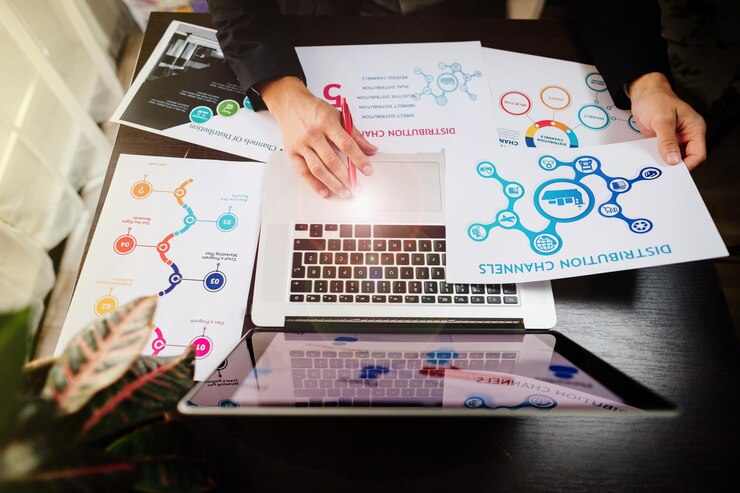ChatGPT isn’t just a viral chatbot—it’s one of the most powerful free AI tools available today for increasing productivity and accelerating research. Whether you’re a student, professional, content creator, or entrepreneur, learning how to use ChatGPT for productivity and research can dramatically change how you approach your daily tasks. This guide explains practical ways to get more done in less time using ChatGPT, while also unlocking its potential as a smart, fast, and collaborative research assistant.
Why Use ChatGPT for Everyday Work and Study?
Productivity often comes down to how well you manage your time, organize your thoughts, and access information. ChatGPT helps streamline all three. With the ability to generate content, summarize complex topics, brainstorm ideas, and even write code or solve equations, ChatGPT acts like an intelligent assistant that’s available 24/7.
For researchers and students, ChatGPT can help break down difficult material, suggest sources, explain concepts, and structure outlines. For professionals, it can help write emails, draft proposals, automate writing tasks, and speed up brainstorming sessions.
Setting Up Your Workspace with ChatGPT
To make the most of ChatGPT, start by identifying how you plan to use it. OpenAI’s ChatGPT works best in a browser or app interface, and the free version offers more than enough features for most productivity needs. Here are a few setup tips:
-
Save prompts you use regularly in a notes app
-
Keep ChatGPT open in a pinned tab or split-screen
-
Use clear, specific instructions for better responses
-
Consider using ChatGPT with plugins or tools like Zapier or Notion for enhanced workflows (available on premium plans)
Now, let’s explore how to apply ChatGPT across different areas of productivity and research.
1. Brainstorming and Idea Generation
Staring at a blank page can be one of the biggest blocks to productivity. ChatGPT is excellent for creative ideation and quick brainstorming sessions. Whether you’re planning blog posts, YouTube scripts, business pitches, or social media captions, you can get tailored ideas in seconds.
Sample prompt:
“Give me 10 blog title ideas for an article about remote work productivity.”
You can also refine ideas further by asking follow-up questions, narrowing the audience, or changing the tone and format.
2. Writing Drafts and Improving Copy
Writing is time-consuming—but ChatGPT can help you generate solid first drafts for everything from blog posts and newsletters to marketing emails and product descriptions. It won’t always write final-quality content, but it saves hours of initial work.
Prompt example:
“Write a professional email pitch to a potential client introducing our social media marketing services.”
You can also use ChatGPT to improve what you’ve already written. Ask it to rewrite, shorten, expand, or clarify your text based on tone and purpose.
3. Researching Topics and Summarizing Information
Need to understand a complex topic quickly? ChatGPT can summarize articles, simplify jargon-heavy content, and provide key points from long-form materials.
Prompt example:
“Summarize the key takeaways from the latest IPCC climate report in simple terms.”
While ChatGPT can’t browse real-time web content in the free version, you can paste in text or links and ask it to analyze the material. It’s also great for building outlines, comparing theories, and generating research questions.
4. Structuring Projects and Planning Tasks
If you’re overwhelmed by a large project, ChatGPT can help break it down into manageable steps. Whether it’s planning a research paper, launching a new product, or organizing a webinar, ChatGPT can outline workflows, timelines, and action steps.
Prompt example:
“Help me plan a 4-week content calendar for a personal finance blog.”
You can also ask it to create task lists, prioritize goals, or generate Gantt chart ideas based on your timeline and resources.
5. Learning New Skills or Tools
ChatGPT can be a personal tutor, explaining new concepts, walking you through code, or teaching you how to use tools like Excel, Notion, or Trello. This makes it an ideal companion for self-learners and professionals upskilling on the go.
Prompt example:
“Explain how VLOOKUP works in Excel with an example.”
If the explanation feels too advanced or too simple, just ask for a different version, or have it explain like you’re five.
6. Automating Repetitive Work
While the free version doesn’t integrate with external apps directly, ChatGPT can still generate scripts, email templates, or formulas that you can copy and use elsewhere. If you’re working with Google Sheets, Excel, or even basic code tasks, this can be a big time-saver.
Prompt example:
“Write a Google Sheets formula to count the number of times the word ‘completed’ appears in column A.”
It can also generate code snippets, email subject line variations, or newsletter outlines in just a few seconds.
7. Organizing Notes and Summarizing Meetings
Paste your meeting notes into ChatGPT and ask it to clean them up, summarize the discussion, or generate key takeaways. This is incredibly useful for professionals, students, and remote teams.
Prompt example:
“Summarize the following meeting notes and suggest three action items.”
If you record meetings and use transcription tools like Otter.ai or Tactiq, you can feed the transcripts into ChatGPT for fast processing.
8. Enhancing Research Accuracy with Source Validation
Although ChatGPT can’t provide verified citations or real-time news in its free version, it can suggest where to look, generate placeholder references, or simulate academic research formatting. If you’re writing a paper or article, this helps accelerate your draft process.
Prompt example:
“List possible academic angles and research questions about climate migration.”
Once ChatGPT suggests ideas, you can verify facts, cross-reference with authoritative sources, and build a stronger foundation.
Limitations and Responsible Use
While ChatGPT is powerful, it’s not perfect. It can occasionally generate inaccurate or outdated information, especially in its free version which lacks real-time browsing. Always double-check facts, cross-verify citations, and use critical thinking when reviewing AI-generated content.
It’s also important to avoid over-reliance. ChatGPT should enhance your thinking, not replace it. Use it as a tool to amplify your effort, not automate your intelligence.
Final Thoughts
ChatGPT has become more than a chatbot—it’s a trusted productivity partner for writers, thinkers, researchers, and creators alike. By learning how to use ChatGPT for productivity and research, you can tap into a tool that helps you save time, focus better, and reach higher-quality outcomes—without burnout.
Whether you’re outlining your next big project, learning a new concept, or simply trying to stay ahead in your busy day, ChatGPT offers a reliable, fast, and easy way to get more done. Start with small tasks, explore its capabilities, and gradually integrate it into your daily workflow. You’ll quickly see how much smarter your workdays can become.




